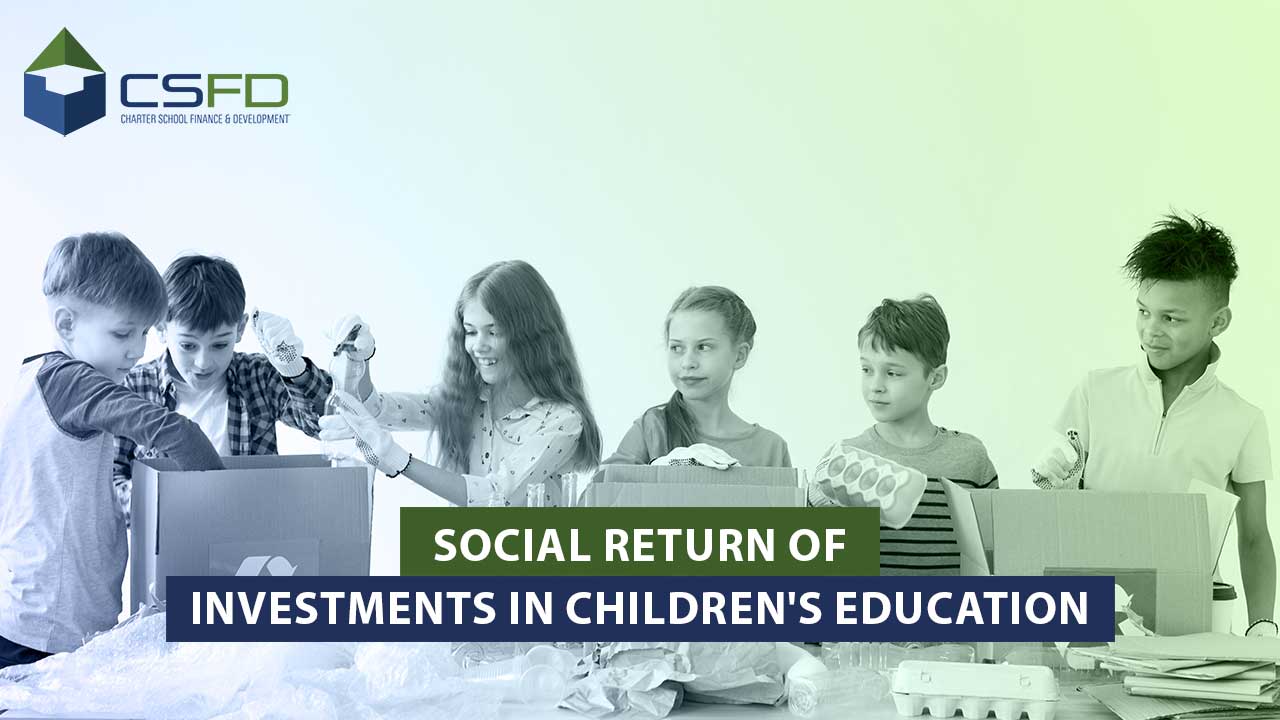Education has played a significant role in the development and progress of societies since the beginning of human history. Education enables individuals to develop their abilities, acquire knowledge and skills, and become more informed citizens. However, the importance of education investments extends not only to individuals but also to societies and countries. In this article, we will address the topic of ‘The Social Returns of Investments in Children’s Education’ and take an in-depth look at how these investments contribute back to society.
Enhancing the Workforce through Education
Education plays a critical role in enhancing the workforce. The business world is rapidly changing and becoming more complex. Educated individuals are better equipped to adapt to these changes. Their possession of more knowledge and skills makes them more competitive in the business world. Employers value educated workers for their higher productivity, creativity, and adaptability, thus supporting sustainable growth in the business sector and fostering economic development.
An educated workforce can adapt more quickly to new technologies and business processes, helping businesses stay competitive. Additionally, educated employees are more likely to bring innovation and fresh ideas to the table. Innovation is a crucial factor that triggers economic growth.
Reducing Social Inequality
Education is a powerful tool for reducing social inequality. Providing equal educational opportunities to children in disadvantaged areas is critical for diminishing social disparities. Equal educational opportunities open doors for every child to realize their potential, fostering social mobility.
Education provides an equal starting point for everyone regardless of factors such as social class, ethnic background, or gender. This contributes to creating a fairer and more equitable society. Disadvantaged groups gain more opportunities through education, reducing social inequality.
Education also increases individuals’ chances of participating in the workforce, improving the living conditions of economically disadvantaged groups. Furthermore, educated individuals tend to be more informed consumers and voters, providing an opportunity to support policy changes aimed at reducing social inequality.

Enhancing Health and Well-being
Education contributes to improving health and well-being. Educated individuals have better access to healthcare services and make more informed health decisions. This raises the overall health levels in society and contributes to a decrease in health issues. Additionally, individuals with higher education levels tend to have lower rates of smoking and obesity.
Education teaches individuals how to access healthcare services and maintain a healthy lifestyle. It also enhances their ability to understand and use healthcare services effectively. This facilitates early diagnosis and treatment of health issues, resulting in improved overall public health and reduced healthcare costs.
Promoting Social Progress
Education promotes social progress. Educated individuals tend to be more conscious and active citizens. This increases democratic participation and contributes to addressing social issues more effectively. Furthermore, education fosters the ability to question social norms and values, which is crucial for driving social change.
Education encourages respect for different viewpoints and the recognition of diversity as a valuable resource. This leads to a more tolerant and open-minded society. Additionally, educated individuals are better equipped to engage in the resolution of social issues, accelerating social progress.
Economic Returns
The economic returns of investments in education are of paramount importance. Educated individuals achieve higher income levels and pay more taxes. This provides more resources for public services. Moreover, higher levels of education lead to lower unemployment rates and stimulate economic growth.
Educated individuals earn higher incomes, which in turn increase personal welfare and improve living conditions. Additionally, they contribute more tax revenue to the government due to their higher income levels. This additional income supports the financing of public services and infrastructure development.
Education is vital not only for individuals but also for the overall development of societies and countries. Therefore, let’s continue to examine the social returns of investments in education in more detail.
Enhancing Society’s Innovation Capacity
Educated individuals are more capable of generating new ideas and developing innovative projects. Innovation is a critical factor that triggers economic growth and enhances competitiveness. Education fosters innovation capacity by imparting critical thinking, problem-solving, and creative thinking skills.
Additionally, educated societies tend to invest more in research and development activities, promoting the emergence of new technologies and scientific discoveries. Particularly in STEM (Science, Technology, Engineering, and Mathematics) fields, education acts as a driving force for technological advancement and industrial development.
Improving Social Norms and Values
Education instills awareness of ethical values, human rights, environmental protection, and social responsibility in individuals. Educated individuals tend to exhibit more empathy and tolerance, contributing to a fairer and more sustainable society. They better understand social issues and actively contribute to their solutions.
Education also encourages increased participation in democratic processes. Educated individuals make more informed decisions in elections and possess a better understanding of public issues. This underscores the importance of an educated society as a foundation for robust democracies.
Promoting Economic Growth
Education is a key driver of economic growth. An educated workforce is more productive and delivers higher product and service quality. This enhances business growth and competitiveness. Additionally, educated individuals are more inclined to become entrepreneurs and establish new businesses, further supporting economic growth.
Educated individuals achieve higher income levels, contributing to the overall prosperity of society. Higher income levels enable better access to healthcare services and improved living conditions. Furthermore, educated individuals pay more taxes, which increases government revenue and enhances the quality of public services.
Fostering Cultural Richness and Artistic Expression
Education promotes cultural richness and artistic expression. Individuals with an appreciation for art, music, literature, and other creative fields play a crucial role in preserving cultural heritage and fostering the creation of new artistic works. Educated societies place higher value on cultural diversity and its preservation.
To sum up, The social returns of investments in children’s education hold significant value for individuals, societies, and countries. Education encompasses various areas, from enhancing the workforce and reducing social inequality to improving health and well-being and promoting social progress. Moreover, the economic returns ensure more effective utilization of public resources. Therefore, it is essential to recognize that investments in education are not only beneficial for individuals but also play a crucial role in the development of societies and nations. Every investment in children’s education contributes to shaping a brighter future. Education is one of the fundamental pillars of society and one of the most powerful tools shaping our future.


